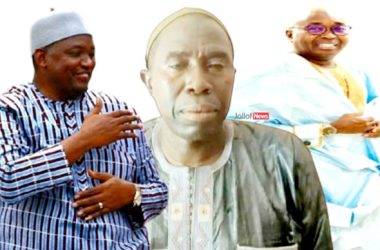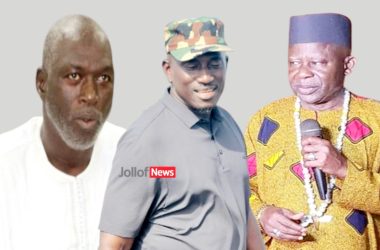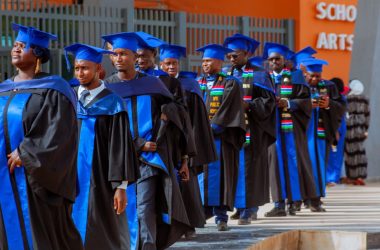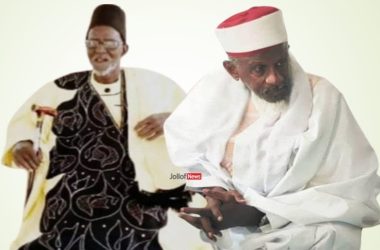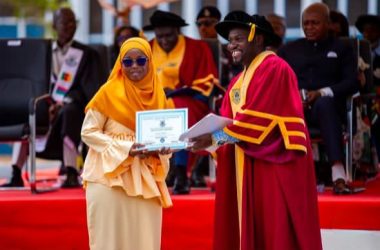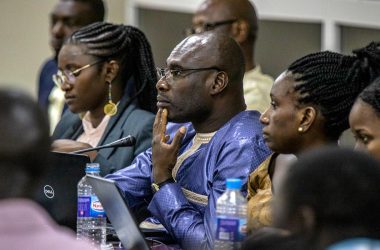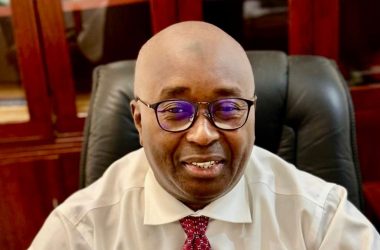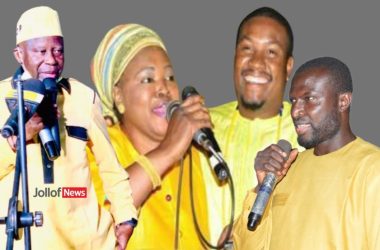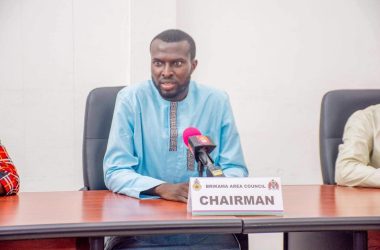
This is probably the most significant question on many minds at present, as we are less than 50 days to the 4th December 2021 Presidential elections, and President Barrow’s supporters are taunting the UDP supporters that our candidate Lawyer Ousainou ANM Darboe is disqualified to stand for President in the upcoming presidential elections in The Gambia.
We have heard this many a times and most recently in the video of the disgraced Chairman of Brikama Area Council, Mr Sheriffo Sonko. In fact there is rumour making rounds that Lawyer Darboe will not stand because he is not qualified.
Understandably, the thought of a negative answer to that question gives much hope to the opponents of a Lawyer Darboe presidency, whilst giving much concern and anxiety to many enthusiasts of a Lawyer Darboe presidency, which they have waited for more than a quarter of a century to relish in.
Thus, I will be quick with my answer to the above question and give my reasons below. The answer is simple, as Lawyer Darboe himself stated before, there is nothing in the laws of this country that can prevent him from standing for the office of President in 4th December 2021, presidential elections. My research into the same confirm that he could not be more right in that claim. I confirm this truth not just because of my bias political favour for him, as my party leader and choice for President, but based on my research and understanding of the laws of The Gambia, as a practicing lawyer in The Gambia. I have taken time to give my detail reasons below for the reasonable minds to discern.
The proponents of the assumption that Lawyer Draboe is not qualified to stand for Presidency in the 4th December 2021 Presidential elections have placed significant reliance on the literal and misconstrued interpretation of Section 62(3) of the Constitution of The Gambia 1997, Which they claimed disqualified Lawyer Darboe from being eligible to stand in the December 4th, 2021 presidential elections.
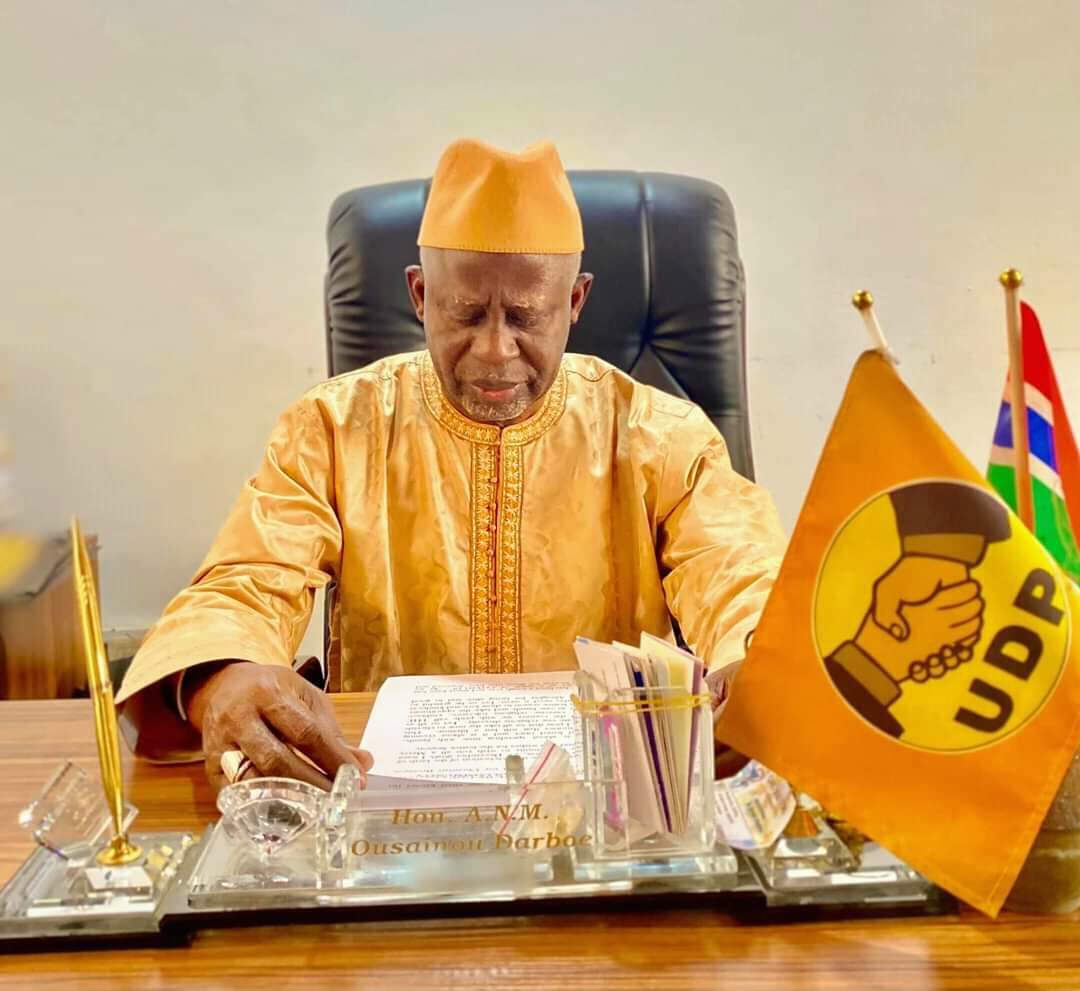
For clarity this is what Section 62(3) of the 1997 Constitution of The Gambia states:
“(3) A person who, while holding public office in The Gambia has been-
a) compulsorily retired, terminated or dismissed from such office, or
b) has been found guilty of any criminal offence by any court or tribunal established by law; or
c) has been found liable for misconduct, negligence, corruption or improper behaviour by any commission or committee of inquiry established by law shall not be qualified for election as President”
In interpreting the above section, many could be forgiven for being misled by the newspaper headlines of Lawyer Darboe’s removal from the office of Vice President of the Republic of The Gambia on 13 March 2019, which they reasoned as the basis for his disqualification, whilst others assumed his conviction on 20 July 2016 is the reason for his disqualification.
For clarity none of the above subsections of Section 62(3) of the Constitution of the Gambia applies to Lawyer Darboe’s case or affect his eligibility for the office of Presidency.
My succinct explanation for that conclusion is that Lawyer Darboe was never legally ‘dismissed’ or ‘terminated’, or ‘compulsory retired’ from the office of Vice President of The Gambia neither was he ever convicted for any criminal offence, whilst holding a Public Office. Thus, he was never legally dismissed, terminated, or compulsorily retired, whilst holding a public office. And I place much emphasis on the word legally, for many people have been relying heavily on the literal meaning of the words dismissed and terminated.
However, the Gambia Supreme Court has recently reiterated the long-standing legal precedent that when interpreting constitutional provisions of fundamental and protected rights, it must be given a broad and purposive interpretation, see the case law of the Supreme Court below.
Thus, the literal interpretation of Section 62(3), as many people have been engaged in is wrong and flawed consideration of the Section. The protected fundamental rights in issue in this case is Lawyer Darboe’s rights to political rights provided under Section 26 of the Constitution of The Gambia, which states that:
“Every citizen of The Gambia of full age and capacity shall have the right, without unreasonable restrictions-
(a) to take part in the conduct of public affairs, directly or through freely chosen representatives;
(b) to vote and stand for elections at genuine periodic elections for public office, which election shall be by universal and equal suffrage and be held by secret ballot;
(c) to have access, on general terms of equality, to public service in The Gambia.”
Thus, any restrictions that ought to be imposed to restrict that fundamental rights of Lawyer Darboe ought to be reasonable and further has to be interpreted broadly and purposively, but cannot be interpreted literally.
My detailed explanation for my conclusion is given hereafter. Firstly, and for the purpose of clarity, it is not in dispute that Lawyer Darboe was holding a Public Office, as the Vice President of The Gambia from 29 June 2018 to 13 March 2019, when he was relieved from that office. This is because, Section 230 of the Constitution defines Public Office as an office that receives payment from the consolidated funds. And Section 156(2) of the same Constitution confirms that the office of the Vice President, is one of the offices that receives salaries from the consolidated funds. As a result, it suffices to confirm that the office of the Vice President is indeed a Public Office.
It is further worth noting that Public Office in the constitution also include an office in public service. This is because Section 166(3) of the Constitution defines an office in Public Service as an office, which the emolument comes from the public fund. Whilst Section 151(2,3 & 6) confirmed that the Consolidated Funds is a public funds, for it refers to it as a “consolidated fund or any other public fund”. As a result, it is safe to conclude that all Public Offices are offices of public service, except the Public Offices precluded under Section 166(4) of the Constitution, which exclude the offices of the President and the Vice President. These are deemed to be Public Offices that are not in Public Service.
Thus, the issue worth considering is whether Section 62(3)(a) of the Constitution in essence applies to Public Offices that are excluded from Public Service. And if so, can officers of such offices be compulsorily retired or dismissed or terminated from such public offices, which has been the source of much speculation as to Mr Darboe’s qualification!
It is worth noting that the constitution gave no definition for the terms provided under Section 62(3)(a) as “compulsorily retired”, “dismissed” or “terminated” from the public office. Neither did it explain how such terminations, dismissals or compulsory retirements ought to be conducted.
The only legal text that offers definitions for such terms and how they are applied is provided in the Code of Conduct for the Civil Service of the Gambia, 2013, which is the revised version of the 1994 version of the same codes. These codes are supplementary legislation, which is sanctioned by the same Constitution of The Gambia under Section 221(3), which states as follows:
“(3) An Act of the National Assembly may make provision –
(a) for the modification of the Code of Conduct; or
(b) the adoption of supplementary codes of conduct by the judicial service Commission, the public Service commission, the competent authority of any public service or the disciplinary authorities of any disciplined force.”
It suffices to state that the Code of Conduct for the Civil Service in The Gambia, 2013, is produced by a competent authority being the Personnel Management of the government, PMO, and they defined the terms of Dismissal, Termination and Compulsory Retirement, which are provided under Section 62(3)(a). However, these codes define those terms as punishments for breaches of ethical codes in Public Office. This is found under Code 7 of the Codes of Conduct supra., which states:
“PENALTIES FOR VIOLATION OF ETHICAL CODE
The Public Service Regulations set out the punishments which may be ordered as a result of disciplinary offences. The types of punishments are as follows:
1. DISMISSAL FROM THE SERVICE
This is the most severe punishment since it entails forfeiture of all pension and/or gratuity to which an Officer may be entitled.
This punishment is only administered in extremely serious cases viz;
(a) serious misconduct;
(b) malpractices and;
(c) criminal conviction;
2. TERMINATION OF APPOINTMENT
An Officer would be entitled to pension and or gratuity. The pensions Authority may however reduce such benefits by a certain percentage.
This punishment is administered in cases of:
(a) persistent lateness and absenteeism;
(b) unsatisfactory performance of duties or functions; and
(c) improper conduct or behaviour
8. COMPULSORY RETIREMENT
If, as a permanent civil servant, an Officer had attained the age of 50 years and his/her work performance was considered unsatisfactory or below standard, the Head of Department/Permanent Secretary could submit a case to the Permanent Secretary, Personnel Management Office, for his/her compulsory retirement.”
What is clear from the above Codes, is that the terms of compulsory retirement, dismissal and termination in public office or public service are aimed at punishing conducts deemed inappropriate and unacceptable for public officers in Public Office. As a result, one can understand why it would be necessary to prevent a repeat of such conducts in public service and public office and even more so at the highest Public Office, being the office of the President.
It is thus reasonable to understand why our constitutional framers, would seek to prevent a repeat of such conducts by such people at the highest Public Office of the country, being the office of the President, by inserting such terms as disqualification criteria for candidates vying for Presidency under Section 62(3)(a) of the Constitution of the Gambia. This is also in tandem with the prohibitions sought by our Constitutional framers at Section 62(3), subsection (b) and (c) of the constitution of the Gambia, which equally disqualifies candidates, who were found guilty of criminal conducts or committed misconduct, corruption, etc, whilst holding Public Office in the past.
It is further worth noting that such punishments referred in the Code of Conduct are applied to an individual, only after a disciplinary process, akin to a court process in the case of criminal convictions, etc, and it is proven that the accused public servant has committed such misconduct as alleged of them! The affected parties are further afforded with a right of appeal to appeal against such findings, through our court systems, if they are dissatisfied with the outcome of their disciplinary process.
These terms were also existing in the Civil Service Codes since 1994 before they were revised in 2013, which predated the coming of the 1997 constitution of The Gambia. Thus, it is safe to state that the constitutional framers of our Constitution were aware of these terminologies, as punishments under the civil service codes, at the time of their insertion of such terms at Section 62(3)(a) of the 1997 Constitution.
Their co-opting of those terms, in the constitution, at the time, is simply to achieve the same goal as intended under the other subsections of Section 62(3) of the Constitution, which is to prevent those whose past conducts, whilst in Public Office, were so unholy that they should be barred or disqualified from running for the highest Public Office in the land.
It is thus my ardent belief that this is the sole purpose of the terms of dismissal, termination and compulsory retirement under Section 62(3)(a) of the constitution, which is to prevent people with bad history in Public Office from running for President. Establishing that purpose of a legislative text, is the main essence of the principle of broad and purposive interpretation of a legislative text. Such broad interpretation of Section 62(3) of the Constitution would be in-sync with the long-standing legal precedent of interpretation of our Supreme Court, as confirmed in the recent case of Sheriffo Sonko v IEC & 1Or, SC CA 002/20 (Unreported) delivered 18th March 2021 at page 15, where the apex court confirmed in the lead Judgment of Justice A. Bah, that:
“According to this Court in the case of Gambia Press Union and 2 Ors -v- The Attorney General SC CS No.1/2014 (unreported) delivered 9th May 2018. Posited that: “It is correct that a constitution, no less the Constitution of the Republic of The Gambia, must be given a broad and a purpose construction”, referring to the case of the Attorney General of The Gambia v Momodou Jobe (1984) AC 689 at p.700H, (1984) UKPC 10, where the Judicial Committee of the Privy Council held that:
“A constitution, and in particular that part which protects and entrenches fundamental rights and freedoms to which all persons of the state are to be entitled, should be given a generous and purposive construction”.
This is because, as noted above the issue affects the fundamental and protected rights of Lawyer Darboe to political rights, which is protected under Section 26 of the Constitution, as quoted above, to have the political right to vote and be voted in to hold Public Office. And if the literal interpretation is adopted as being claimed by the opponents of Lawyer Darboe, his fundamental rights of being voted in to a Public Office will be impeded.
In line with the foregoing reasoning, can it be appropriately suggested that Lawyer Darboe was legally dismissed, terminated or compulsory retired, as a punishment for his misconduct, or inappropriate conduct whilst holding a public office, which ought to prevent him from holding the highest public office in the land? The obvious answer to that question is simply no. For he had never been through any form of disciplinary procedure, and he was never dismissed or had his appointment terminated based on misconduct or inappropriate conduct whilst in a public office.
It is further my ardent belief that the aforesaid terms are not intended to apply to Public Offices precluded from public service, for such offices are not subjected to such disciplinary procedures that would lead to the punishments of dismissal, termination and compulsory retirement, which do not apply to the office of Vice President and President.
The contrary notion being peddled by the literal interpreters of Section 62(3)(a) gives the assumption that the mere termination of Lawyer Darboe‘s appointment as Vice President of the Gambia on 13 March 2019 by President Adama Barrow, under Section 70(5)(a) of the 1997 Constitution, is sufficient to disqualify him under Section 62(3)(a). That would simply be draconian and cannot be reasonable restriction, as permitted under Section 26 of the Constitution, which the proponents of such assumptions do not know the profound ramifications of.
In order words what is being claimed is that the Constitution did not only empower our President with the authority to sack his Vice President under Section 70 of the Constitution, but also that it further empowered him under Section 62(3)(a) to bar such a Vice President from ever becoming a President in The Gambia.
Now, I believe we can all agree that it is one thing to claim that the President is empowered to sack any person he had power to appoint, which is confirmed in many parts of the Constitution, but it is another thing to claim that the President is further empowered to bar such people for life from ever becoming Presidents in the Gambia. Despite, them having committed no misconduct or inappropriate conduct in Public Office prior. If our Constitution intends such, it would have made that very clear in its provisions!
However, there is no where in our Constitution which empowers our President to impose such sanctions or punishments on citizens, especially his potential opponents from challenging him in a Presidential election. It further goes against the notion of natural Justice that people are punished, not for their conducts, but based on the wishes and whims of a sitting President.
Even if we assume but not concede, that our President is indeed empowered by our Constitution at Section 62(3)(a) to bar his former Vice Presidents from running for office of president for life, by his termination of their appointments, can such be claimed to be a reasonable restriction as permitted under Section 26 of the Constitution of The Gambia? I doubt it very much!
Thus, it is my ardent belief that the prohibitions intended at Section 62(3)(a) of the Constitution mainly aimed at punishing or barring a candidate base on their unholy conducts of the past and not based on the whimsical decisions of the President to fire as he wills. It is thus my humble opinion that Lawyer Darboe cannot and is not barred from standing for the office of President, because of his mere removal from office of Vice President by President Barrow. Neither was he ever convicted of any criminal offence whilst holding a Public Office…
